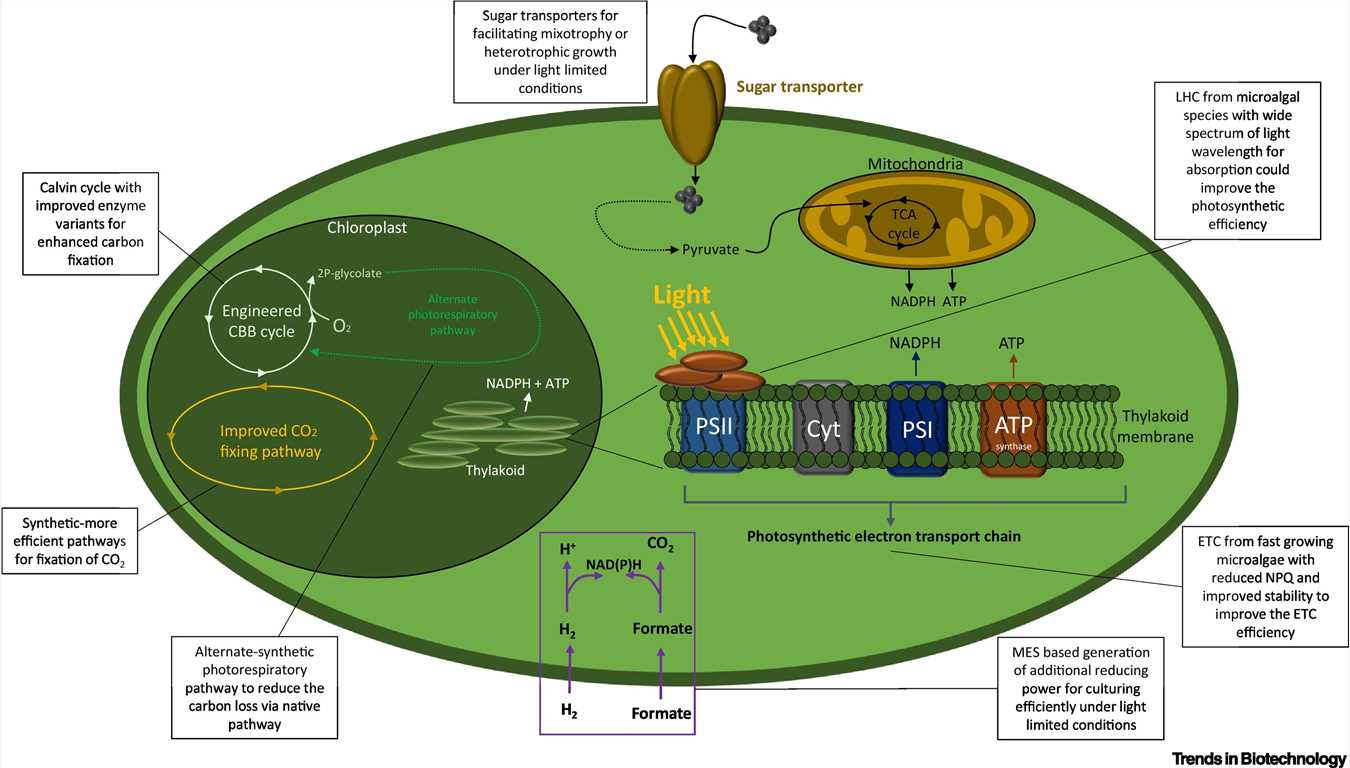Microalgae have complex photosynthetic systems that capture solar energy and CO2. In addition, they grow faster than plants and have a relatively simple genetic background for genetic manipulation, making them relatively easy to manipulate. Therefore, they are becoming increasingly attractive for producing renewable biofuels and chemicals. As an emerging discipline that approaches biotechnology from a rational design approach, synthetic biology aims to redesign existing biological systems or create artificial life. In recent years, synthetic biology research has focused on model species such as Escherichia coli and yeast. However, following the completion and publication of over 40 cyanobacterial genome sequences and over 60 algal genome sequences, research efforts in synthetic biology approaches are increasingly modifying microalgae for various biotechnological applications.
 Fig 1. Various synthetic biology approaches can be implemented in microalgae to improve biomass or metabolite productivity. (Naduthodi M I S, et al., 2021)
Fig 1. Various synthetic biology approaches can be implemented in microalgae to improve biomass or metabolite productivity. (Naduthodi M I S, et al., 2021)
Basic theoretical and applied research on green biomanufacturing based on synthetic biology of microalgae is of great relevance to solve the environmental, resource, energy, and food problems faced by human beings and to achieve sustainable development of society. Our skilled scientists use synthetic biology tools to improve the yield of microalgae biofuels and other compounds. Lifeasible provides our clients with professional synthetic biology services for genetic microalgae to strengthen the following properties of microalgae:
(1) Improving photosynthetic efficiency through metabolic engineering to increase algal biomass productivity, oil production, and carbon sequestration rates.
(2) Conversion of carbon fluxes into valuable products.
(3) Develop input-ready microalgal cells to reduce production costs at scale.
Our goal is to modify fast-growing microalgae strains based on reliable genome editing tools to exploit their improved photosynthesis to produces interesting commodities. Our featured platforms are:
We have successfully applied several synthetic biology tools to construct synthetic gene networks of microalgae and genome-scale of microalgae, which our customers widely use in algal biofuel production. If you are interested in our solutions, please contact us directly.
Reference
Lifeasible has established a one-stop service platform for plants. In addition to obtaining customized solutions for plant genetic engineering, customers can also conduct follow-up analysis and research on plants through our analysis platform. The analytical services we provide include but are not limited to the following:
Get Latest Lifeasible News and Updates Directly to Your Inbox
Adaptive Evolutionary Mechanism of Plants
February 28, 2025
Unraveling Cotton Development: Insights from Multi-Omics Studies
February 27, 2025